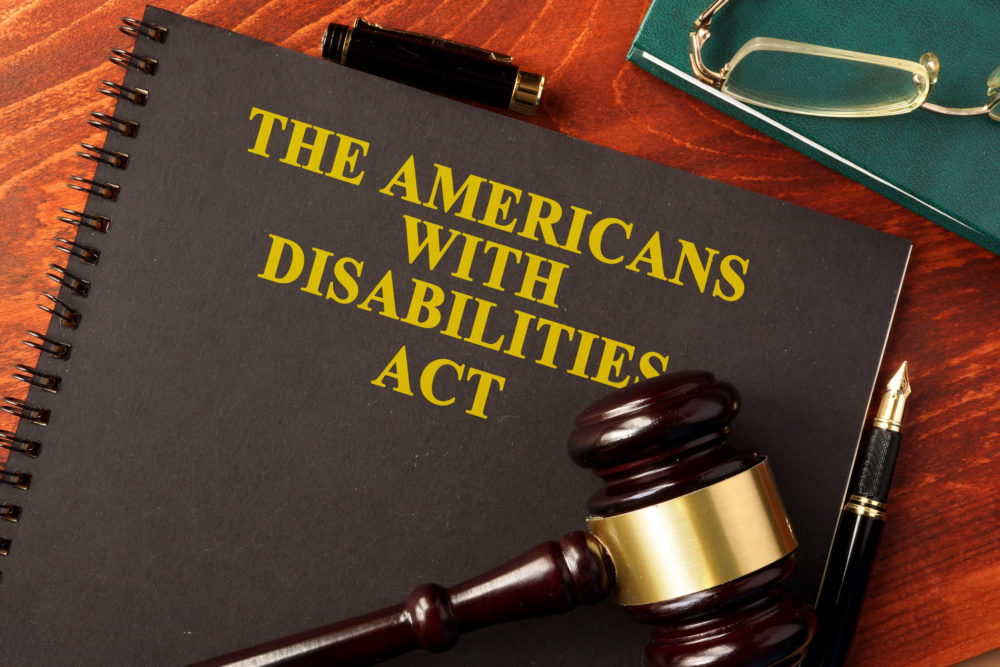The Department of Labor Regulations on disclosure of 401(k) plan fees and expenses are designed to provide transparency to participants in a user-friendly format, allowing for an apples-to-apples comparison of fees and expenses under a plan’s investment options that impact participant account balances, and a look under the hood on plan administration costs charged to participant accounts. But greater disclosure can lead to greater scrutiny, and an essential duty for plan sponsors is monitoring fees and expenses that could reduce participant account balances, and timely addressing excesses.
ADA Litigation: Trends, Developments, and Challenges to Watch Out For
TKG2023-01-02T21:54:45-05:00The past years have seen changing tides on the Americans with Disability Act (ADA) litigation landscape. The number of lawsuits filed in federal courts, which chiefly stemmed from alleged violations on websites and mobile application accessibility, has continuously increased. As regulatory developments and court decisions are yet to unfold, the ADA litigation landscape remains uncertain. Thus, businesses and their counsel must keep themselves in the know of any emerging update in this field of law. They must also revisit their practices to ensure ADA compliance and dodge potential lawsuits.
Recent Trends in Wage and Hour Litigation: What’s New and What Lies Ahead
TKG2021-08-22T22:02:07-04:00Numerous policy changes and trends concerning wage and hour have made the landscape more complicated and challenging. Recently, the Wage and Hour Division (WHD) of the US Department of Labor (DOL) released six opinion letters which aimed to address a raft of issues under the Fair Labor and Standards Act (FLSA).
What’s New for Non-Compete Law: Trends, Developments, and Critical Issues Explored
TKG2022-05-19T21:24:17-04:00The ever-changing landscape of non-compete law continues to give rise to significant developments that companies need to be aware of. Recently, several new state laws have been adopted to limit non-compete agreements’ enforceability, thus, further complicating matters for employers. At the federal level, the Freedom to Compete Act has been introduced in the Senate to prohibit non-compete pacts for minimum wage earners. Moreover, with a pandemic in the backdrop, many other issues have also emerged.
A Practical Guide to Employee Arbitration Agreements: What You Need to Know
TKG2021-03-31T11:53:36-04:00Over the past years, employee arbitration agreements have been helpful in preventing employment-related lawsuits. If properly executed, arbitration clauses provide several benefits to both employers and employees. These benefits include the resolution of claims away from the public, the ability to select the arbitrator, and the faster process by which conflicts are resolved. Arbitration of claims is also significant in redirecting employment-related cases from overburdened courts.
Independent Contractor or Employee: The Dangers of Misclassification
Joenel2022-12-27T21:55:57-05:00The U.S. Department of Labor (DOL) Wage and Hour Division and the National Labor Relations Board (NLRB) are continuously taking initiatives to improve each agency’s law enforcement, specifically against employee misclassification. Guided by their standards, the DOL and the NLRB aggressively enforces the Fair Labor Standards Act (FLSA) and the National Labor Relations Act (NLRA) respectively to expand the scope of classifying joint employers while narrowing the scope of categorizing independent contractors.
Independent Contractor Misclassification Litigation: Demystifying Tools and Tactics
Joenel2022-12-27T21:32:39-05:00The flexible work arrangement has become a norm in the post-pandemic time, presenting hurdles among company decision-makers when it comes to employee classification. Misclassifying an employee as an independent contractor can pose legal risks to employers including liability claims related to employment taxes, interest, and penalties.
Trends and Updates on EEOC: Navigating Compliance Amidst the Covid-19 Pandemic
Iwork OJT2021-07-12T05:55:22-04:00As the COVID-19 pandemic continues to impact workplace situations in the U.S., the Equal Employment Opportunity Commission (EEOC) recently released guidance to clarify employers’ growing concern on the application of Americans with Disabilities Act (ADA) and other EEOC laws.









